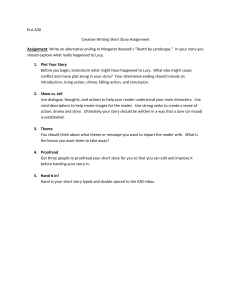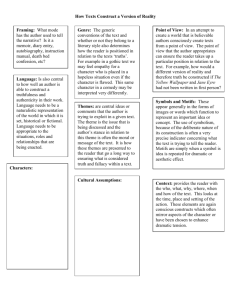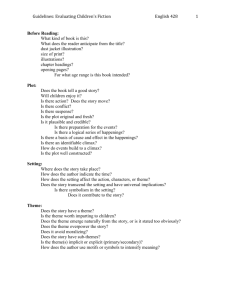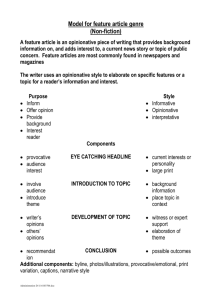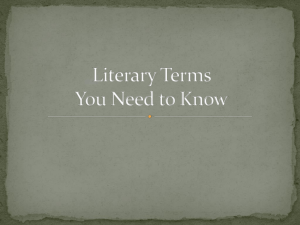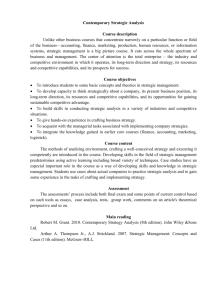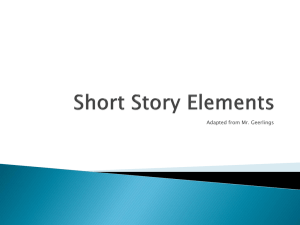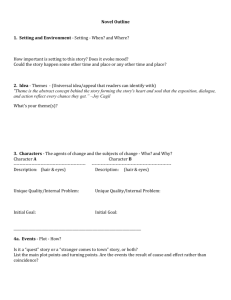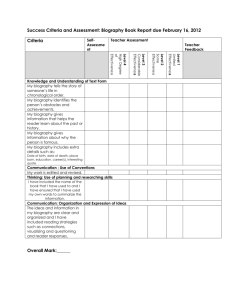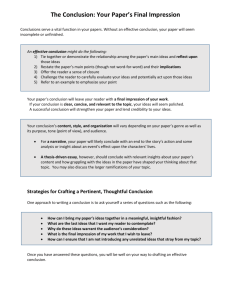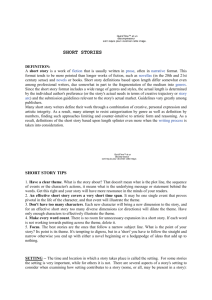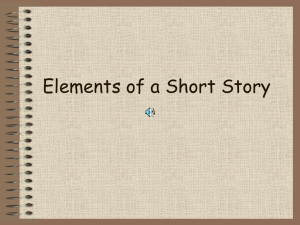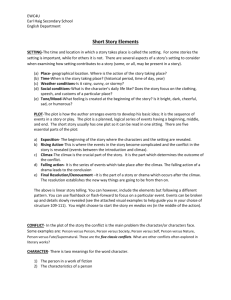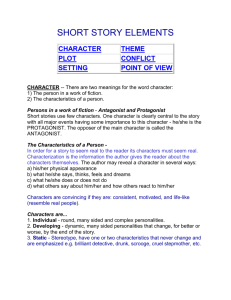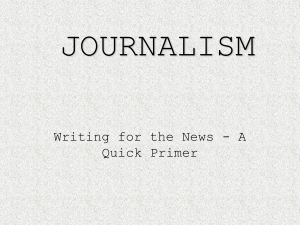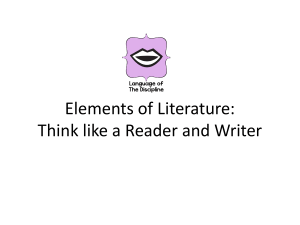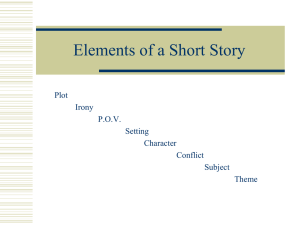Criteria for Evaluating Biographies
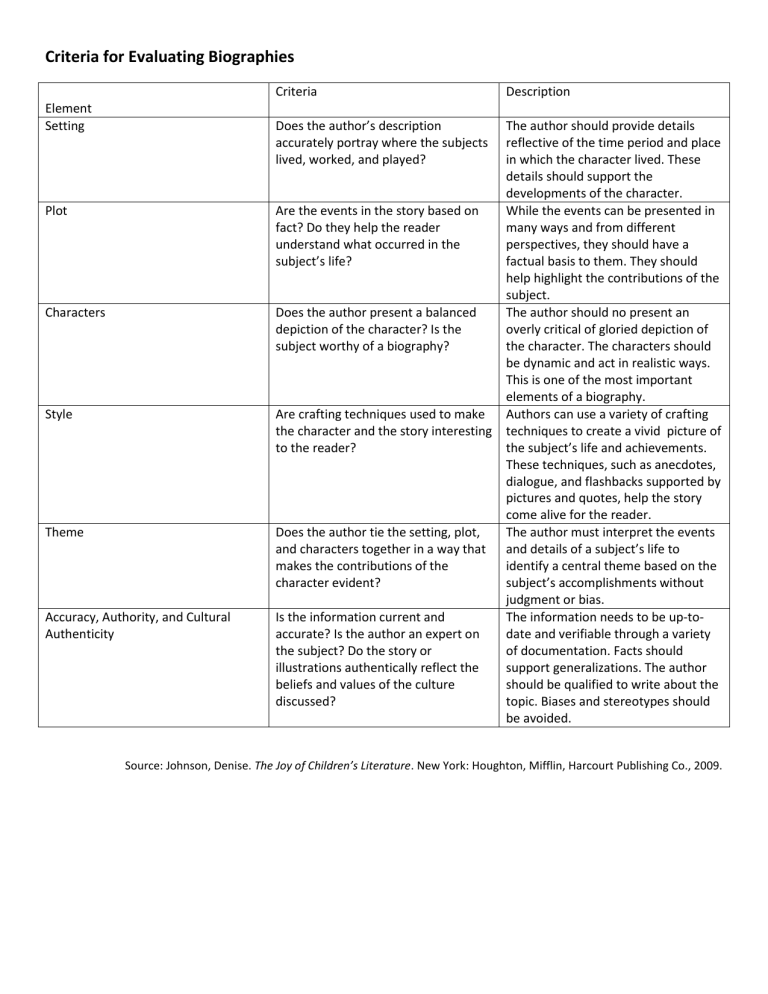
Criteria for Evaluating Biographies
Element
Setting
Criteria Description
Plot
Characters
Style
Theme
Accuracy, Authority, and Cultural
Authenticity
Does the author’s description accurately portray where the subjects lived, worked, and played?
Are the events in the story based on fact? Do they help the reader understand what occurred in the subject’s life?
Does the author present a balanced depiction of the character? Is the subject worthy of a biography?
Are crafting techniques used to make the character and the story interesting to the reader?
Does the author tie the setting, plot, and characters together in a way that makes the contributions of the character evident?
Is the information current and accurate? Is the author an expert on the subject? Do the story or illustrations authentically reflect the beliefs and values of the culture discussed?
The author should provide details reflective of the time period and place in which the character lived. These details should support the developments of the character.
While the events can be presented in many ways and from different perspectives, they should have a factual basis to them. They should help highlight the contributions of the subject.
The author should no present an overly critical of gloried depiction of the character. The characters should be dynamic and act in realistic ways.
This is one of the most important elements of a biography.
Authors can use a variety of crafting techniques to create a vivid picture of the subject’s life and achievements.
These techniques, such as anecdotes, dialogue, and flashbacks supported by pictures and quotes, help the story come alive for the reader.
The author must interpret the events and details of a subject’s life to identify a central theme based on the subject’s accomplishments without judgment or bias.
The information needs to be up-todate and verifiable through a variety of documentation. Facts should support generalizations. The author should be qualified to write about the topic. Biases and stereotypes should be avoided.
Source: Johnson, Denise. The Joy of Children’s Literature. New York: Houghton, Mifflin, Harcourt Publishing Co., 2009.

